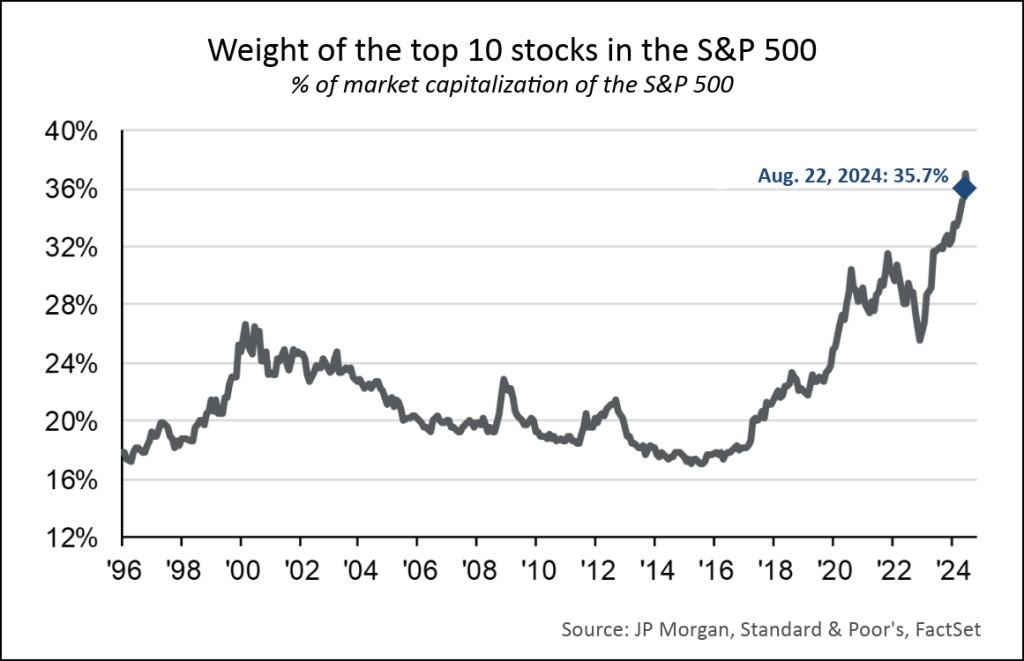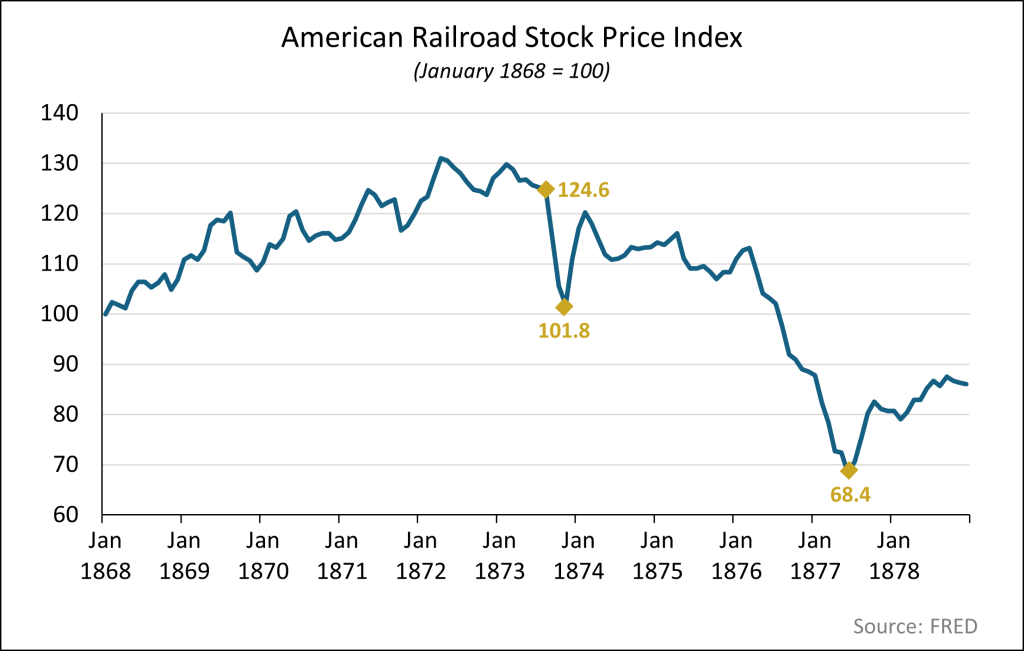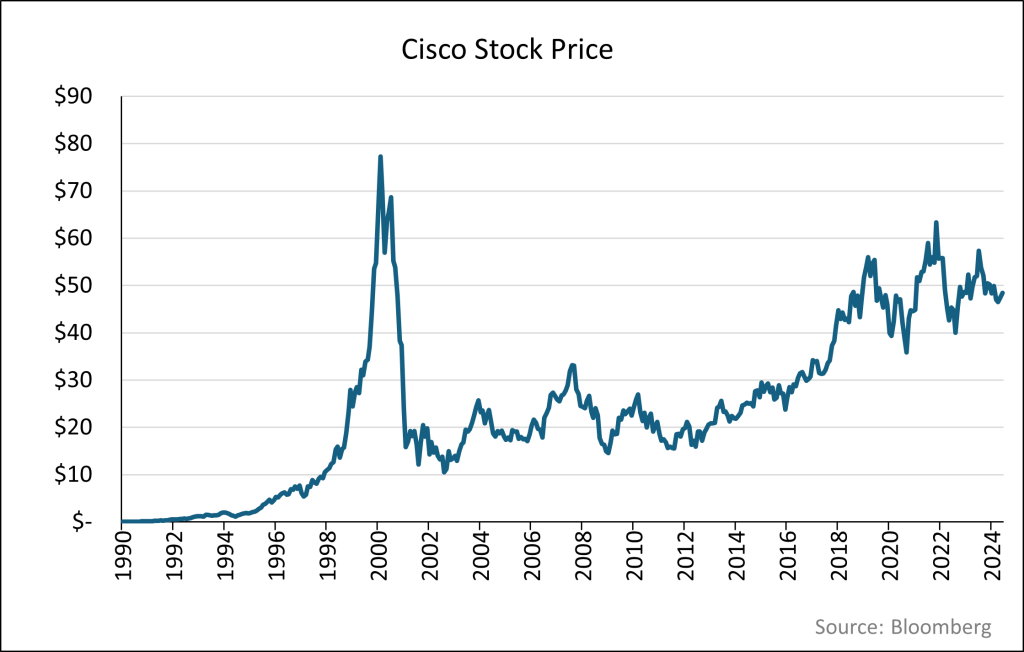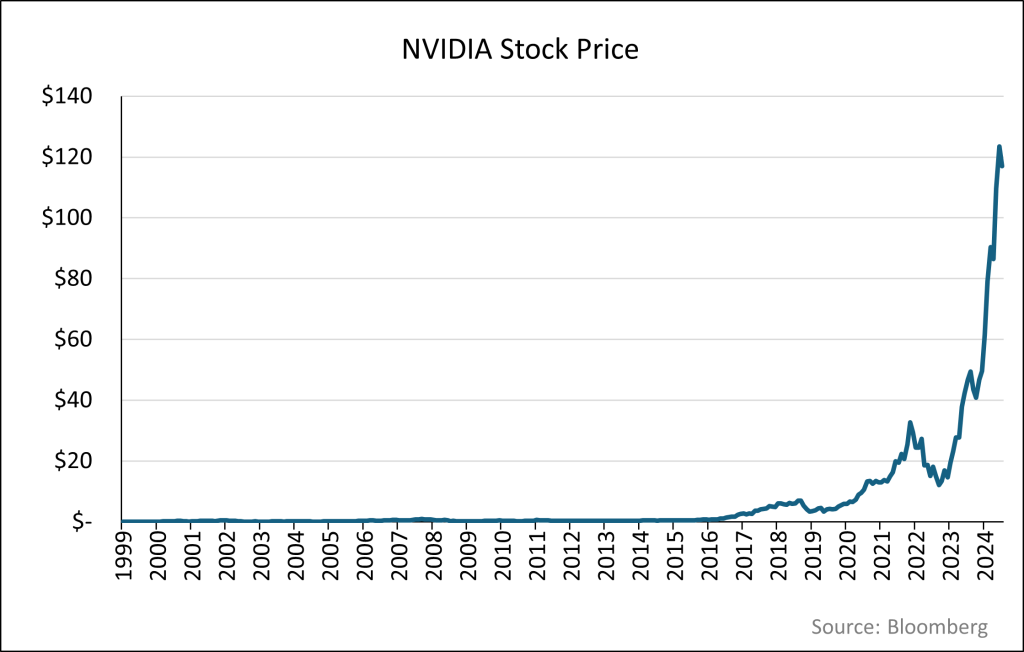Nelson Capital Management


The advent of new technology often generates excitement which draws the attention of investors. The companies that are perceived to profit from this new technology will see their share prices climb as spectators pile into the stocks. This will continue until a handful of companies make up a large portion of an index. Today, the hype around artificial intelligence has pushed the top 10 companies in the S&P 500 to make up 35% of the index while the remaining 490 companies account for 65%. This far exceeds the concentration of the top 10 during the dotcom bubble at 27%.

Stock market concentration can indicate that there may be a bubble forming. When too much exuberance draws market capital to a narrow subset of the market, company valuations can exceed their intrinsic value. If something negative happens to one of these companies or the economy, it can cause a quick and severe correction. Investors who bought at inflated prices can be exposed to significant losses.
Using history as a guide, we can see a common story evolve. After the Civil War, railroads emerged as a new transportation technology causing investors to flock to the industry. Railroad companies sprung up all over the place and used debt to finance expansion. When it became clear they had overextended themselves, a premiere banking house went bankrupt and caused the Financial Panic of 1873.

Over 100 years later, the dawn of the Internet would draw the attention of investors who poured money into technology and internet startups. Many of these companies would never generate any revenue or profit. When the bubble burst, cash-strapped startups became worthless. Even some of the more established companies, such as Cisco (who made the picks and shovels for the Internet), have yet to reclaim the high reached in March of 2000. These cautionary tales show the dangers of concentration risk.

Today, the leaps made in the advancement of artificial intelligence (AI) over the last couple of years are impressive. There is no denying that it will change the way in which we live and work in the years to come. However, this hype has attracted a lot of market capital pushing the price of some companies, such as NVIDIA (who makes the picks and shovels for AI), to the stratosphere.

If you are fortunate enough to have large exposure to an AI winner, it can be difficult to trim back or sell. However, history shows the importance of diversification to mitigate against the risk of stock market concentration and bubbles. Diversification is the practice of spreading your investment portfolio across a broad range of asset classes, sectors, and geographies.
 Asset classes such stocks, bonds, real estate, and cash all have different risk and return profiles. A main tenet of diversification is that not all asset classes should decline in value at the same time. For example, if our economy were to experience a recession, stock prices would likely fall. The Federal Reserve would respond by decreasing interest rates to boost growth which would benefit bond portfolios.
Asset classes such stocks, bonds, real estate, and cash all have different risk and return profiles. A main tenet of diversification is that not all asset classes should decline in value at the same time. For example, if our economy were to experience a recession, stock prices would likely fall. The Federal Reserve would respond by decreasing interest rates to boost growth which would benefit bond portfolios.
Similarly, maintaining broad exposure to all sectors of the economy will reduce idiosyncratic risk. If the technology sector were to experience a sharp decline, more defensive sectors such as consumer staples, healthcare, and energy would hold up better and cushion overall portfolio performance.
When investors get caught up in the promise of new technology, it can be tempting to want to capture all of the upside. It is important to remember that the downside risk can evolve just as quickly. Working with an advisor to create a tax-conscious diversification strategy can shield your assets when the bubble bursts.
Individual investment positions detailed in this post should not be construed as a recommendation to purchase or sell the security. Past performance is not necessarily a guide to future performance. There are risks involved in investing, including possible loss of principal. This information is provided for informational purposes only and does not constitute a recommendation for any investment strategy, security or product described herein. Employees and/or owners of Nelson Capital Management, LLC may have a position securities mentioned in this post. Please contact us for a complete list of portfolio holdings. For additional information please contact us at 650-322-4000.
Receive our next post in your inbox.